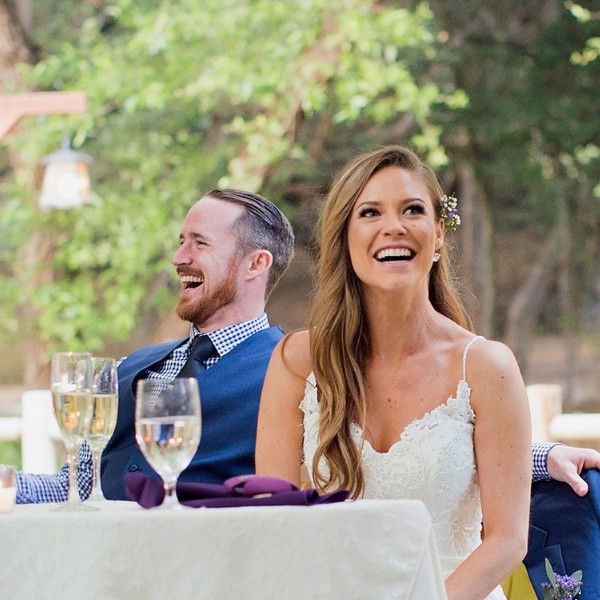Wedding Gossip: How To Deal. From whispers to drama. Talking it out. Preventing gossip from ruining your special day. When rumors hit close to home. A peaceful wedding journey. From gossip to gratitude.
Planning a wedding is exciting and joyous but can also be a breeding ground for gossip and drama. In the age of social media and constant communication, rumors can spread like wildfire, potentially causing stress and tension for all parties involved.
In this article, we’ll explore how wedding gossip starts, how it can quickly escalate, and most importantly, how to manage it effectively while maintaining healthy relationships.

Wedding Gossip: How To Deal
The Starting Point
Identify who or what typically initiates wedding gossip. Now this is easy to say, but hard to do. It’s essentially reverse engineering and tracing back how that gossip started and how it eventually got to you.
Sometimes it’s easy to assume “who” started it. Because we always have that one or two (or more than that!) people in our lives who have been known in the family or in your inner circle to stir up some gossip.
Even if it were “well-meaning” and “with good intentions” – gossip still hurts people. In addition, most of the time, gossip does not help the situation – at all.
Ask around gracefully and kindly about who or how the people around you have heard the “news.” Be prepared, however, because some people will most likely not give up their source.
At this time, you might not need to “pinpoint” the actual “person” who started this, but you can start a COUNTER GOSSIP. And no, it’s not revenge or confrontation, it’s a graceful way of setting boundaries and asserting your truth. We’ll discuss this more later in this article.
Stay true to your vision and the reasons behind your choices. When gossip swirls, let your unwavering commitment to your celebration be your anchor.

RELATED: WEDDING PASSIVE-AGGRESSIVE COMMENTS: HOW TO DEAL
The Grapevine
The original “story” might not be the same version that “reaches you.” As it goes through the grapevine, there’s a good chance that it’s already distorted.
Another thing that we want to address is that when you hear something about this through the grapevine, it is much harder to understand how “that” person from your “inner circle” was not able to just come up to you and ask you directly.
The Strategies
While it’s natural to share details about your wedding, be mindful of whom you confide in. Share with those who support and uplift you, reducing the chance of information becoming fodder for gossip.
Some details are meant to be kept private. If certain aspects of your wedding are becoming subjects of gossip, consider keeping those elements under wraps until the big day.
BEFORE GOSSIP: Establish privacy and limit the wedding details you share. You can practice a “need to know” and “share when done” strategy where unless there’s something that this specific person needs to know, you don’t share it with them. Or if you want to be respectful and kind, you can share specific things with them once it is done, or once it is solved.
If you are to share something with someone, you can help them accountable with lines like “You’re the only person I’m sharing this, are you ok with holding this privately? If not, I don’t want to impose and pressure you.”
This helps because sometimes gossip starts when the person you shared it with might not be able to hold that information to themselves and have the need to share it with others to discuss further.
Well, we know there are also just the gossipmongers around who can’t help themselves but you know who they are and not sharing important details with them is key.

AFTER GOSSIP: Listen intently instead of reacting, and then ask as many questions as you can.
This goes without saying that there is a “betrayal” aspect of this gossip train. You probably shared something important or private and put your trust in this person, who ended up sharing it with other people that you didn’t want to inform and involve.
CONSTRUCTIVE CONVERSATION: Here are tips on how to address gossip, correct the misinformation, and eventually change the narrative.
- WHO IS THE PERSON YOU NEED TO TALK TO? You might not even need to address it with the actual gossiper, but you can go clear it up with the people or person that got brought up and tangled into that *gossip* – especially if those relationships are near and dear to you.
- RIGHT TIME, RIGHT PLACE. It’s natural to feel hurt, angry, defensive, and as we mentioned earlier, betrayed. This is why you might need to wait for the right time to address the gossip, specifically when you’re already calmed down and regulated. Find a suitable place where the conversation can be more private and also less strict and uptight. Coffee, brunch, or a light meal are great options.
- ONE ON ONE. Hopefully, there will be no more people involved in this gossip train. But even if there were, it is important to speak to each person one-on-one to avoid triangulation and defensiveness. Thank them for the chance to work on things.
- USE “I” STATEMENTS. Using “I” statements does not place “blame” on the other person. Focus on your feelings. This will help both of you get out of a “defensive” state and be more open and relaxed.
- BE DIRECT WITH GRACE. Bring up the specific topic. Be straightforward about it. Bring up what you’ve heard, who said what, and how the whole story transpired. Short and concise is always best.
- DON’T USE THE WORD GOSSIP. Telling someone they like to gossip is not helpful. It will put the other person in defensive mode and close up. When you label the situation, the other person already thinks there is no solution and no point to this discussion. Even if they are “guilty”, frame the conversation about “some story tidbits that you heard..”
RELATED: WEDDING NEGATIVITY: 10 STRATEGIES TO PROTECT YOURSELF

- ASK TO UNDERSTAND. After you bring up “what you heard” – you can phrase the question to understand as “I’m sure you were coming from a good place, can you help me understand how you came up with that?”
- LISTEN. FOR REAL. Pay close attention to what the other person says. Listen actively without interrupting. This shows that you value their perspective, even if you disagree. Some responses you are hearing might not even make sense to you, but it doesn’t have to anyway. The point of this conversation is not for both of you to agree (although good have!), but for the other person to put the “story” being spread to rest.
- ANOTHER SIDE OF THE COIN. Try not to become defensive during the conversation. Gossip often stems from misunderstandings or miscommunication. Be open to the possibility of a different side to the story.
- SPECIFIC DISCONNECT. If the gossip is based on misunderstandings or misinformation, clarify the facts and provide your perspective. If it is about a private matter that you trusted the person with, ensure to emphasize that you trusted them with that information. Although you understand that the person didn’t think that it would spread like it did, or it might have been an honest mistake or slip-up, it is still important to let them know that you value trust and honesty. They can let you know right away if something like this happens so you know what to expect.
- BOUNDARIES. Clearly express your expectations for respectful communication. You can let the person know that you are having this conversation with them because you value the relationship you have and that you are looking to establish better communication strategies.
- PLAN OF ACTION. If possible, work together to find a resolution. Depending on the situation, this might involve an apology, a commitment to better communication, or finding common ground.
- STICK TO THE ACTUAL PROBLEM. Throughout the conversation, maintain your dignity and avoid resorting to personal attacks or name-calling. Stay focused on the issue at hand. It might be so tempting to spit out snide comments and character judgments, but it is not helpful.
- LEAD THE NARRATIVE. Be firm and let the person know that this is your wedding, your story, and your decision. What to do with your wedding, what to share, and what not to share is something personal to you. Deciding if a story is not a “big deal” is only up to you.

- LET GO. Know when you are fighting a losing battle. Some people will not change or apologize or even take accountability. And it’s a lesson and sometimes a revelation so we then know who that person *really* is. Lose the battle and win the war. Win the war by not sharing or involving wedding details, or any life details with this person/s.
- DON’T GO ON SOCIAL MEDIA. Don’t let anything slip onto social media. It will just add fuel to the fire and make the situation so much harder to discuss, resolve, and move on from. Keep things offline.
- THE BIGGER PICTURE. Rebuilding trust after addressing wedding gossip will take time and effort. No family or inner circle is perfect. This is all part of being in a relationship. There are always learning curves, challenges, hard discussions, and addressing feelings involved.
RELATED: REASONS WHY OVERTHINKING IS RUINING YOUR WEDDING PLANNING
The Counter Gossip (Wedding Gossip)
This may be an unpopular opinion, but you have to start dropping hints about the truth. Once that “gossip” is out, you can also create your “own” gossip gracefully.
If confronted with gossip directly, respond with grace and confidence. You can choose not to engage in the gossip, offering a simple, positive response that redirects the conversation.
Not in an obvious spiteful, revengeful, or defensive way, but in an “I am in control” type of way.
If there was a rumor about how your future sister-in-law somehow thought that you disrespected your future mother-in-law on one occasion.
Based on the relationship you have with them, after you’ve addressed this with your future in-laws, you can share stories with others along the lines of “I respect my future in-laws so much that I am always willing to find ways to work it out with them.”
This can come out naturally when someone asks you “How are you? How’s the wedding planning?” – you can say something along the lines of “It’s been great. I am getting to know everyone in the family better and trying to work things out with them because I truly am excited for our lives to merge.”
You can create these scripts and practice them in the mirror so you’ll feel confident talking about them.
Sometimes the problem with gossip is that only the *bad part* of the story keeps spreading but the *good* part isn’t so much. But you can always change that and you can start spreading the *good* gossip.
No such thing as actual *good* gossip. But essentially what we’re aiming for is to spread positive *stories* that will dispel the gossip.

No Reaction
If you don’t want to get your hands dirty or don’t want to deal with this whole gossip business, you can totally do so. You most likely already know who the person is anyway.
Some things are not worthy of your energy and if you think that this is one of them. Yes. You don’t have to give a reaction. You can let people think what they want to think and you can go on with your beautiful life.
Know where you stand. As long as the *realest* people in your life know the truth (that includes you and your partner!) and have worked it out, you’ll be thriving.
You now know who are the people that you can trust and can’t trust. You now know who are the people who are willing to work things out with you. This does not mean you are burning bridges, but this means you now know your boundaries and where you stand. You now know what to keep only to yourself and your partner.
Gossip may sting, but remember that it often says more about the gossiper than the subject. Rise from the experience stronger, more resilient, and focused on the beautiful celebration ahead.

Remember that resolving issues related to gossip may take time and patience. While it’s not always possible to change the other person’s behavior, addressing the issue openly and honestly can help you take control of the situation and protect your well-being.








